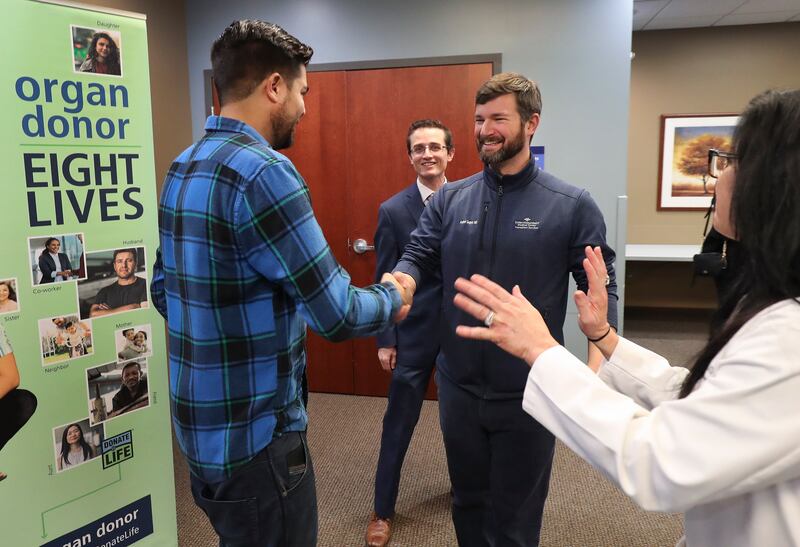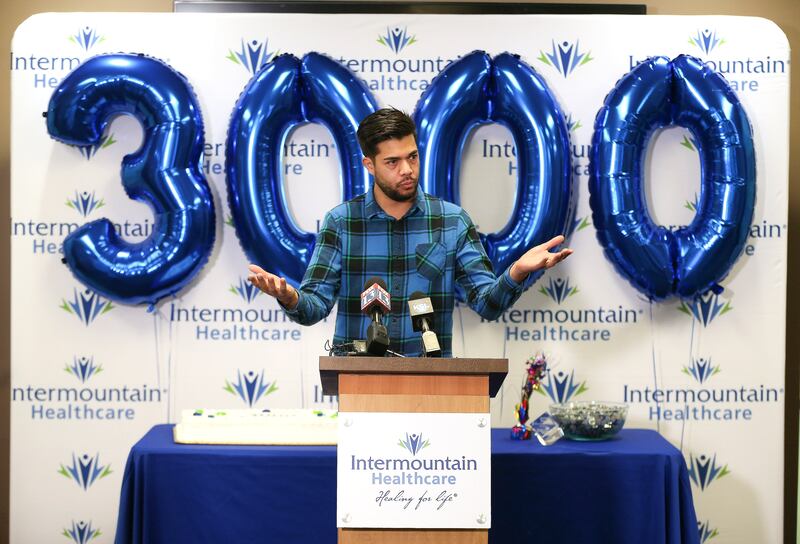MURRAY — After diabetes struck Jeffrey Willis at a young age, he said he didn’t know how long he’d be able to enjoy life’s simple moments.
“I didn’t know how long I could play with the dog again, experience those late June evenings where the sun didn’t set until 10 p.m., feel the wind, experience the desolation of the mountains,” recalled Willis, 39.
“I was at peace with my fate, but at the same time, I knew that one day I’d be fighting,” he said.
A few years ago, as his kidney failure worsened, Willis learned how difficult it would be to receive a kidney transplant. But he still faced responsibilities like family and work.
He received a few calls that kidneys were available, but ended up being unable to go through surgery “for one reason or another,” Willis said.
Renal failure eventually “defeated” him, he remembered. But in November, Willis finally got the call he’d been waiting for. He received a new kidney and pancreas from a deceased donor, becoming the 3,000th person to receive a kidney transplant at Intermountain Healthcare in the 37 years since the program began.
The health care system celebrated that milestone Friday at Intermountain Medical Center in Murray, where hospital officials described it as emblematic of the growing number of people willing to sign up to become donors.
During the news conference, Willis thanked staff members who worked to save him, and the family of the person who saved him.

“Everyone that I’ve encountered, you are the reason why I am alive right now. Every single one of you play a vital role in saving lives on a daily basis. And for that reason, I feel unworthy of your presence. You are all truly angels in my eyes, and I haven’t felt so safe in a long time,” Willis said.
He urged others who are waiting to receive a transplant to be patient.
The hospital performs an average of 100 kidney transplants per year, said Derek Ginos, director of Intermountain’s abdominal transplant program. Only about a quarter of transplant programs in the country have performed 3,000 kidney transplants, he said.
Dr. Diane Alonso, medical director of Intermountain’s program, said “it’s up to us as a community to say yes for donation, to consider living donation and being a donor for our patients, because this disease afflicts many people, and probably touches someone that you know, or a friend of someone that you know.”
Dr. Donald Morris, medical director for Intermountain’s kidney and pancreas transplant program, said seeing patients like Willis doing well after their transplant “is what it’s all about.”
“It’s a unique area of medicine, where people as sick as Jeff, you’re able to do this, and you double their life expectancy compared to being stuck on dialysis,” he said.
Morris also wanted to let people know there’s a fairly new way to donate a kidney to a loved one who’s not a match, through a national kidney exchange program that allows people to be matched up with other kidney donors.
“That’s been exciting, and we’re really picking up steam on that. And so I think we’ll do even more living kidney transplants this year,” Morris said.


